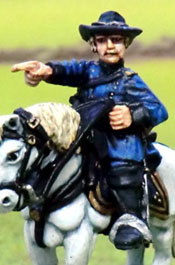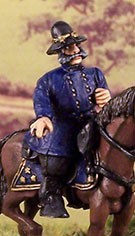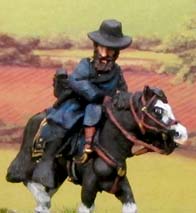Description
Joseph hooker was born in hadley, massachusetts,on november 13th 1814. He was the grandson of a captain in the american revolutionary war. His initial schooling was at the local hopkins academy. He graduated from the united states military academy in 1837, ranked 29th out of a class of 50, and was commissioned a second lieutenant in the 1st u.S. Artillery. His initial assignment was in florida fighting in the second of the seminole wars. He served in the mexican-american war in staff positions in the campaigns of both zachary taylor and winfield scott. He received brevet promotions for his staff leadership and gallantry in three battles: monterrey as captain, national bridge major, and chapultepecas lieutenant colonel. His future army reputation as a ladies’ man began in mexico, where local girls referred to him as the “handsome captain”.After the war, he served as assistant adjutant general of the pacific division, but resigned his commission in 1853; his military reputation had been damaged when he testified against his former commander, general scott, in the court-martial for insubordination of gideon pillow. Ironically pillow who would serve the confederacy, as a brigadier general in a variety of posts! Hooker settled in sonoma county, california, as a farmer and land developer, but was more devoted to gambling, loose women and liquor than to agriculture. . When living in sonoma, he stood for election to represent the region in the california legislature but was defeated by james bennett of santa rosa. Hooker was obviously unhappy and unsuccessful in his civilian pursuits because, in 1858, he wrote to secretary of war john b. Floyd to request that his name be put forward and, presented to the president buchanan as a candidate for a post with the rank of, lieutenant colonel, but nothing came of his request. From 1859 to 1861, he held a commission as a colonel in the california militia.At the start of the war, hooker requested a commission, but his first application was rejected, possibly because of the lingering resentment harboured by winfield scott, now general-in-chief of the union army. He had to borrow money to make the trip east from california. After he witnessed the union army defeat at the first battle of bull run, he wrote a letter to president abraham lincoln that complained of military mismanagement, promoted his own qualifications, and again requested a commission. He was appointed, in august 1861, as brigadier general of volunteers to rank from may 17. He commanded a brigade and then division around washington, d.C., as part of the effort to organise and train the newly formed army of the potomac, under major general george b. Mcclellan.In the peninsula campaign of 1862, hooker was to see action as commander of the 2nd division of the iii corps and made a good name for himself as a combat leader who handled himself well and aggressively sought out the key points on battlefields. He distinguished himself at the battle of williamsburg, which as a result of, he was promoted to major general as of may 5, 1862. Throughout the seven days battles. He chafed at the cautious generalship of mcclellan and openly criticised his failure to capture richmond. Of his commander, hooker said, “he is not only not a soldier, but he does not know what soldier-ship is.” the peninsula cemented two further reputations of hooker’s: his devotion to the welfare and morale of his men, and his hard drinking social life, even on the battlefield.As mcclellan’s army of the potomac army retreated into inactivity, hooker was transferred to major general john pope’s army of virginia. His division first served in its iii corps under major general samuel p. Heintzelman, but hooker assumed corps command of the newly formed iii corps of the army of virginia on september 6, after the northern virginia campaign and the second battle of bull run, a severe union defeat. As robert e. Lee’s army of northern virginia moved north into maryland, hooker’s corps, re-designated the i corps on september 12 was returned to the army of the potomac, and he fought with distinction at south mountain and prelude to antietam. At antietam, his corps launched the first assault of the bloodiest day in american history, driving south into the corps of lieutenant general stonewall jackson, where they fought each other to a standstill. Hooker, who’s aggressive nature led him to inspire his men, left the battle early in the morning with a foot wound. He asserted that the battle would have been a decisive union victory if he had managed to stay on the field, but general mcclellan’s caution once again failed the northern troops and lee’s much smaller army eluded destruction. With his patience at an end, president lincoln replaced mcclellan with major general ambrose burnside.The december 1862 battle of fredericksburg was another union debacle. Upon recovering from his foot wound, hooker was briefly made commander of v corps, but was then promoted to “grand division” command, with a command that consisted of both iii and v corps. Hooker derided burnside’s plan to assault the fortified heights behind the city, deeming them “preposterous”. His grand division (particularly v corps) suffered serious losses in fourteen futile assaults ordered by burnside over hooker’s protests. Burnside followed up this battle with the humiliating mud march in january and hooker’s criticism of his commander bordered on formal insubordination. He described burnside as a “wretch … Of blundering sacrifice.” burnside planned a wholesale purge of his subordinates, including hooker, and drafted an order for the president’s approval. He stated that hooker was “unfit to hold an important commission during a crisis like the present.” but lincoln’s patience had again run out and he removed burnside insteadthe new commander of the army of the potomac, as of january 26, 1863, was fighting joe hooker. Parts of the army saw this move as inevitable, given hooker’s reputation for aggressive fighting, something sorely lacking in his predecessors. During the “mud march” hooker was quoted by a new york times army correspondent as saying that “nothing would go right until we had a dictator, and the sooner the better.” during the spring of 1863, hooker established a reputation as an outstanding administrator and restored the morale of his soldiers, which had plummeted to a new low under burnside. Among his changes were fixes to the daily diet of the troops, camp sanitary changes, improvements and accountability of the quartermaster system, addition of and monitoring of company cooks, several hospital reforms, and an improved furlough system. Other orders addressed the need to stem rising desertion (one from lincoln combined with incoming mail review, the ability to shoot deserters, and better camp picket lines), more and better drills, stronger officer training, and for the first time, combining the federal cavalry into a single corps. Hooker by his actions, is said to have revived the army:also during this winter hooker made several high-level command changes, including with his corps commanders. Both “left grand division” commander major general william b. Franklin, who vowed that he would not serve under hooker, and ii corps commander major general edwin vose sumner were relieved of command, on burnside’s recommendation, in the same order appointing hooker to command. The ix corps was a potential source of embarrassment or friction within the army because it was burnside’s old corps, so it was detached as a separate organisation and sent to the virginia peninsula under the command of brigadier general william f. “baldy” smith, former commander of vi corps. (both franklin and smith were considered suspect by hooker because of their previous political manoeuvring against burnside and on behalf of mcclellan.)[for the important position of chief of staff, hooker asked the war department to send him brigadier general charles p. Stone, however this was denied. Stone had been relieved, arrested, and imprisoned for his role in the battle of ball’s bluff in the fall of 1861, despite the lack of any trial. Upon his release stone would not receive a command, mostly due to political pressures, which left him militarily exiled and disgraced. Army of the potomac despite this, fighting joe would set a very bad example for the conduct of generals and their staffs and subordinates. His headquarters in falmouth, virginia, was described by cavalry officer charles f. Adams, jr., as being a combination of a “bar-room and a brothel”. He built a network of loyal political cronies that included major general dan butterfield for chief of staff, and the notorious political general, major general daniel e. Sickles, for command of the iii corps. Hooker’s plan for the spring and summer campaign was both elegant and promising. He first planned to send his cavalry corps deep into the enemy’s rear, disrupting supply lines and distracting him from the main attack. He would pin down, general robert e. Lee’s much smaller army at fredericksburg, while taking the large bulk of the army of the potomac on a flanking march to strike lee in his rear. Defeating general lee, would allow hooker to move on to seize richmond. Unfortunately for hooker and the union, the execution of his plan did not match the elegance of the plan itself. The cavalry raid was conducted cautiously by its commander, brigadier general george stoneman, and failed to meet none of its objectives. The flanking march went well enough, achieving strategic surprise, but hooker somehow lost his nerve when the first reports of enemy contact reached him on may 1, 1863. Rather than pushing aggressively into lee’s rear, he pulled his army back around the tiny crossroads town of chancellorsville and waited for lee to attack. Lee audaciously split his smaller army in two to deal with both parts of hooker’s army. Then, he split again, sending stonewall jackson’s corps on its own flanking march, striking hooker’s exposed right flank and routing the union xi corps. The army of the potomac dropped into a purely defencive mode and eventually was forced to retreat.The battle of chancellorsville has been called “lee’s perfect battle” because of his ability to vanquish a much larger foe through audacious tactics. Part of hooker’s failure can be attributed to a deadly encounter with a cannonball. While standing on the porch of his headquarters, the missile struck a wooden column the general was leaning against, knocking him senseless and putting him out of action for the rest of the day. Despite his incapacitation, he refused entreaties to turn over temporary command of the army to his second-in-command, major general darius n. Couch. Several of his subordinate generals, including couch and major general henry w. Slocum, openly questioned hooker’s command decisions. Couch was so disgusted that he refused to ever serve under hooker again. Political winds blew strongly in the following weeks as generals manoeuvred to overthrow hooker or to position themselves if lincoln decided on his own to do so.However: general robert e. Lee, would once again began an invasion of the north, in june 1863, and lincoln urged hooker to pursue and defeat him. Hooker’s initial plan was to seize richmond instead, but lincoln immediately vetoed that idea, so the army of the potomac began to march north, attempting to locate lee’s army of northern virginia as it slipped down the shenandoah valley into pennsylvania. Hooker’s mission was first to protect washington, d.C., and baltimore and second to intercept and defeat lee. Unfortunately, lincoln was losing any remaining confidence he had in hooker. When the general got into a dispute with army headquarters over the status of defencive forces in harpers ferry, he impulsively offered his resignation in protest, which was quickly accepted by lincoln and general-in-chief henry w. Halleck. On june 28, three days before the climactic battle of gettysburg, hooker was replaced by maj. Gen. George meade. Hooker received the thanks of congress for his role at the start of the gettysburg campaign, but the glory would go to meade.Hooker’s military career was not ended by his poor performance in the summer of 1863. He went on to regain a reputation as a solid commander when he was transferred with the xi and xii corps of the army of the potomac westward to reinforce the army of the cumberland around chattanooga, tennessee. Hooker was in command at the battle of lookout mountain, playing an important role in lieutenant. General ulysses s. Grant’s decisive victory at the battle of chattanooga. He was brevetted to major general of the regular army for his success at chattanooga, but he was disappointed to find that grant’s official report of the battle credited his friend william tecumseh sherman’s contribution over hooker’s.Hooker led his corps, now designated the xx corps competently in the 1864 atlanta campaign under sherman, but asked to be relieved before the capture of the city because of his dissatisfaction with the promotion of major general oliver o. Howard to command of the army of the tennessee, upon the death of major general james b. Mcpherson. This could of been a touch of favouritism by sherman, as mcpherson had been a favourite of sherman and, howard would remain a rising star, under sherman. This decision did not follow normal procedure, as hooker had seniority over howard, but he also blamed howard in large part for his defeat at chancellorsville (howard had commanded the xi corps, which had borne the brunt of jackson’s flank attack). After leaving georgia, hooker commanded the northern department, comprising the states of michigan, ohio, indiana, and illinois, with the department headquartered in cincinnati, ohio. Hooker, would hold this command from october 1, 1864, until the end of the war. While in cincinnati he married olivia groesbeck, sister of congressman william s. Groesbeck.After the war, hooker led president abraham lincoln’s springfield funeral procession on may 4, 1865. His postbellum life was marred by poor health and he was partially paralysed by a stroke. He was mustered out of the volunteer service on september 1, 1866, and retired from the u.S. Army on october 15, 1868, with the regular army rank of major general. He died on a visit to garden city, new york, on october 31st 1879 and, is buried in spring grove cemetery, cincinnati, ohio his wife’s home town.Hooker was popularly known as “fighting joe” hooker, a nickname he regretted deeply; he said, “people will think i am a highwayman or a bandit.” when a newspaper dispatch arrived in new york during the peninsula campaign, a typographical error changed an entry “fighting joe hooker attacks rebels” to remove the dash and the name stuck. Robert e. Lee occasionally referred to him as “mr. F. J. Hooker” in a mildly sarcastic jab at his opponent.Hooker’s reputation as a hard-drinking ladies’ man was established through rumours in the pre-civil war army and has been cited by a number of popular historians! Biographer walter h. Hebert describe the general’s personal habits as the “subject of much debate”. Although there was little debate in the popular opinion of the time. His men parodied hooker in the popular war song marching along. There is a popular legend brought forward, after the war, that the name”hooker”was a slang term for a prostitute. This use of his name is in part because of parties and a lack of military discipline at his headquarters. Some versions of the legend claim that the band of prostitutes that followed his division were derisively referred to as “general hooker’s army” or “hooker’s brigade.” however, the term “hooker” was used in print as early as 1845, years before hooker was a public figure] and, is likely derived from the concentration of prostitutes around the shipyards and ferry terminal of the corlear’s hook area of manhattan in the early to middle 19th century, who came to be referred to as “hookers”. The prevalence of the hooker legend may have been at least partly responsible for the popularity of the term.There is an equestrian statue of general hooker outside the massachusetts state house in boston.





